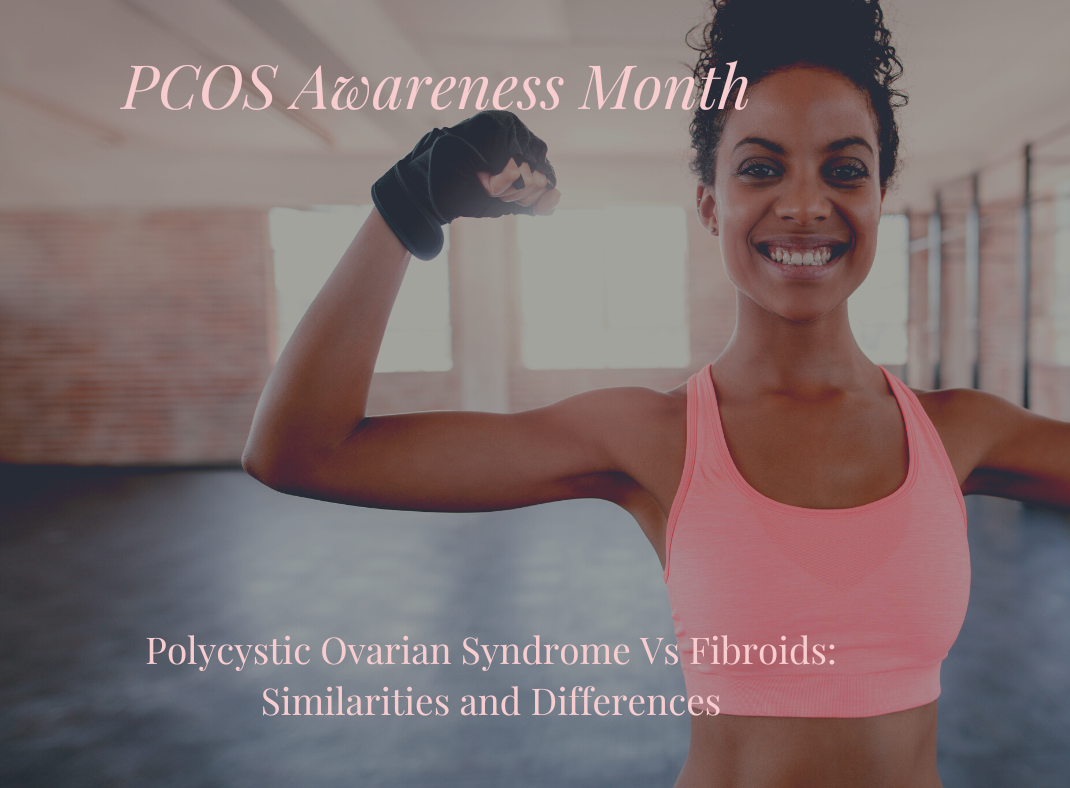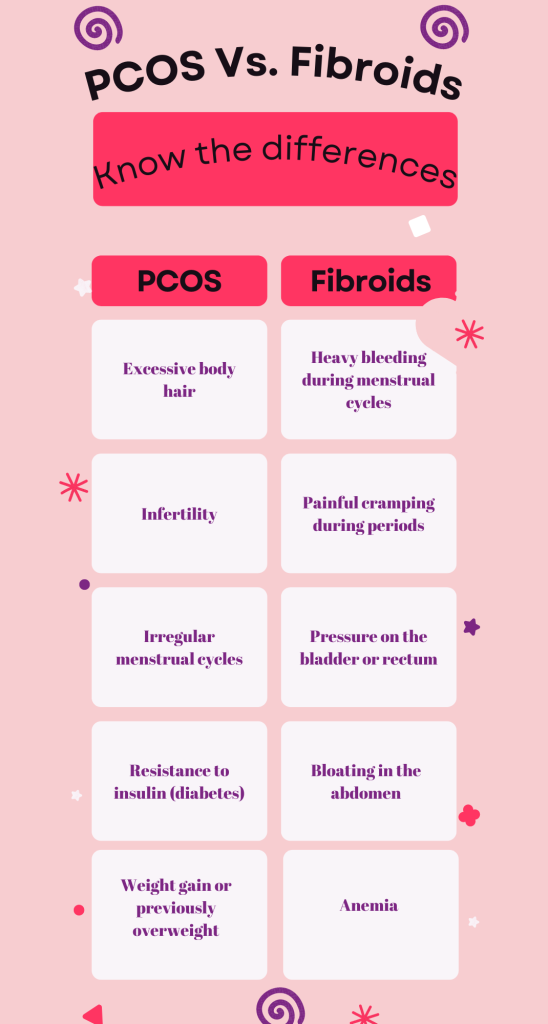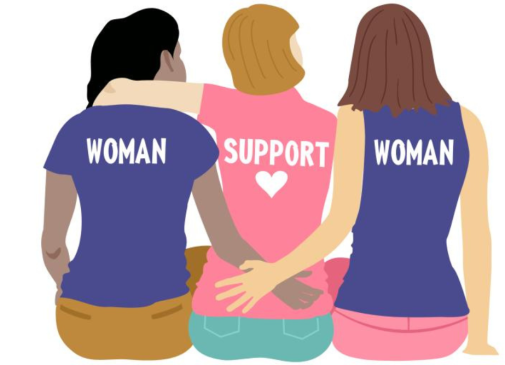
September is Polycystic Ovarian Syndrome (PCOS) Awareness Month. Fibroids and PCOS share similar symptoms which can make it challenging to get a proper diagnosis. If you are having irregular periods, painful periods, or fertility issues, it’s important to know the difference between PCOS and fibroids. It’s always a good idea to talk to your doctor if you notice any changes to your period’s length, volume, and regularity.
PCOS is a hormonal disorder that impacts women who are in their reproductive years. It causes irregular menstrual cycles, and it can impact fertility. It is estimated that one in ten women worldwide has this condition. Despite the effects on reproductive, metabolic, and mental health, it remains one of the most underdiagnosed disorders. One barrier to a timely diagnosis is the diversity of phenotypes (cysts, ovarian function or androgens)1 that are present with this disease.
Risks and Symptoms of PCOS
Heredity plays a role in being at risk for PCOS. If your grandmother, mother, or sister has had PCOS, you are at increased risk of developing it. Weight gain is both a cause and a symptom. Obesity is a risk factor for developing PCOS. Weight gain is tied to the overproduction of androgens (male hormones) and underproduction of progesterone (a female hormone).
These imbalances are linked to missed or lengthy periods, male pattern hair loss, excessive body hair and acne. The ovarian cysts from PCOS develop when there aren’t enough female hormones to trigger a menstrual cycle. Lack of a menstrual cycle can also cause fluid-filled cysts to form on one or both ovaries. These cysts can lead to enlarged ovaries.
PCOS and Uterine Fibroid Differences
PCOS and uterine fibroid symptoms can overlap and can include obesity, heredity, menstrual irregularities and pelvic discomfort. However, the two conditions have marked differences and involve different parts of the reproductive system. PCOS occurs in the ovaries and is related to the release of eggs during the menstruation process. Fibroids are benign tumors that develop on the exterior or in the interior of the uterine walls

Impact on Fertility
PCOS and Fibroids can both impact fertility. PCOS impacts fertility by interrupting ovulation. If fertilization of the egg does occur, the hormone imbalance can disrupt the development of the uterine lining preventing implantation.
Uterine fibroid’s contribution to infertility can involve preventing a fertilized egg from implanting in the uterus. Fibroids can obstruct the fallopian tube. In some cases, a fibroid cluster can grow during pregnancy. The growth of the tumor can result in a miscarriage.
Early diagnosis and intervention can prevent future complications, fertility issues and relieve symptoms.
Can you Have Fibroids and PCOS at the Same Time?
Both conditions can exist concurrently. However, having one doesn’t automatically mean you will develop the other. Fibroids are related to the uterus. The tumors develop within the exterior or interior of uterine walls.
PCOS occurs within the uterus. When the hormone progesterone is low it impedes the release of eggs from the ovaries which results in skipped periods.
Can PCOS Cause Fibroids?
PCOS may not have a direct correlation to uterine fibroid disease. However, it is believed that the hormone imbalance created with PCOS encourages fibroid development. Fibroid growth is tied to high levels of estrogen. High levels of estrogen (estrogen dominance) are noted in women with PCOS.
Boston University’s Black Women’s Health Study2found a possible link between PCOS and fibroids. Participants in the study were found to have a 65% increased risk for fibroid disease. This link could be attributed to other factors. For example, women experiencing the symptoms of PCOS are more likely to seek medical care to address issues like skipped menstrual cycles or infertility.
Treatment Options
Both PCOS and fibroids need to be diagnosed by a physician. There isn’t a single definitive test for PCOS. It requires a pelvic exam, a metabolic blood panel to test for elevated androgens, and an ultrasound to look for irregularities in the ovaries and uterus. Diagnosis for fibroids is very similar. Depending on the location and the size your physician may be able to feel them during a regular pelvic exam. If they are suspected blood work an ultrasound or other imaging may also be ordered to get a more accurate diagnosis.
PCOS can be treated by adopting a healthier diet and with medications that regulate hormones. If you have both conditions treatment of PCOS may provide temporary relief of fibroid symptoms because the hormones are balanced. However, fibroid symptoms may return with more severity if the fibroids continue to grow.
It will be necessary to treat the fibroids to reduce painful symptoms. Uterine Fibroid Embolization (UFE) is an effective non-surgical option that preserves your uterus and fertility. Another benefit is that UFE can treat multiple fibroids of varying sizes at one time.
Do you think you may have fibroids? Check your symptoms here.
References
- https://www.ncbi.nlm.nih.gov/pmc/articles/PMC4433074
- https://www.fertstert.org/article/S0015-0282(06)04444-X/fulltext#secd3486397e932







